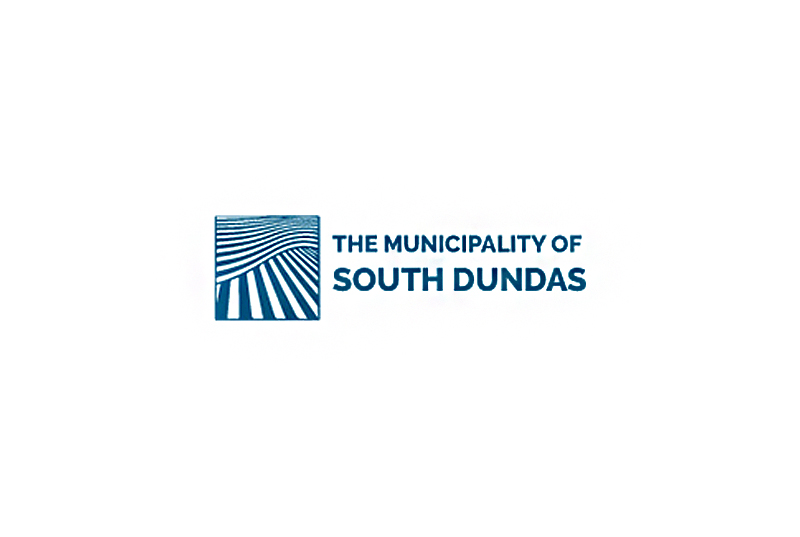Sandy Casselman
Local Journalism Initiative Reporter
MORRISBURG – Municipality of South Dundas politicians were recently faced with a sizeable bill for a decades-old problem.
During the April 26 council meeting, environmental services director Danielle Watson presented council with a recommendation to purchase property that has been contaminated by the Matilda Landfill and to pay for this with roughly $935,437 from the Landfill Reserve and another $12,533 from the capital budget as an unfunded capital expense. Once purchased, the land will be registered as a Contamination Attenuation Zone (CAZ).
Watson’s report stated that a delineation study was undertaken in 2020 to evaluate the level of chloride in groundwater and determine if any fell outside the provincial guidelines for permitted use. Based on the results, South Dundas must create a CAZ for the affected land and since this land is privately owned, the township must buy the property.
“Purchasing the property from the private landowners is a best practice as contaminant levels in a CAZ may impair the current and future uses of the zone and the property’s value,” Watson said in her report. “Since the municipality is responsible for contaminating the lands, it must also be responsible for controlling and preventing further contamination through remediation measures.”
The study determined the flow of the offsite migration of contamination. Watson said underground soil conditions caused the landfill leachate (contaminated liquid) to migrate offsite to the North and Northwest of Matilda Landfill.
When asked if this is something the public has been kept abreast of through various communication channels, Watson said no. While residents were told of the delineation study being conducted in 2020 at the Matilda Landfill, this would be the first time they would be hearing about the contamination, provincial protocols and guidelines, and the consequences.
“I think this would be an area that we really need to start giving this information out to our residents, so they are aware of the difficult decision that any council, and this council, has had to make with not much choice,” Deputy Mayor Kirsten Gardner said.
Councillor Archie Mellan said this is something that has been happening for more than 30 to 40 years and it is just now coming to a head and landing in the laps of the current council. He said residents should know there are provincial guidelines in place that dictate what the municipality must do.
“I think the public has to realize that this is a situation we didn’t want, or the landowners didn’t want,” he said. “It is what it is, and we at least stepped up to the plate and addressed it.”
Watson’s report said staff returned to council in 2021 with the updated information, including the amount of land that needed to be acquired. It was noted that there are three separate owners, and the market value was listed at $12,500. Assisted by legal representation, staff began property acquisition negotiations in February. The final price tag for the contaminated property was $947,970. She recommended that council commit to contributing $240,000 to the landfill reserve each year, as the municipality will need roughly $1 million in 2026 to close and cap the landfill, province permitting.
Mellan said he is happy with the decision to put $240,000 back into the reserve every year for the next four years to rebuild. Like Gardner, he said the public needs to understand that landfills are expensive.
“We’re in a situation where we, the Municipality of South Dundas, have contaminated someone else’s land and it didn’t happen overnight,” Mayor Steven Byvelds said, noting it probably started sometime in the 1970s. “Its just another chapter in the saga that this council, and other councils, have had to endure concerning garbage and landfills.”
Byvelds assured residents watching the meeting that council has spent a considerable amount of time discussing the issue, as well as the cost. He said that in the past the municipality has had do the same thing at the Williamsburg Landfill, purchasing adjacent land contaminated by leachate.
“We’re hoping this purchase will cover the vast majority that is underground,” he said. “This is not the beginning, but its certainly not the end. Many years after we get this thing put to bed and capped, we’ll have to monitor and make sure the leachate pollution doesn’t go any further. This is just another example that landfills cost money, garbage costs money.”
He said South Dundas will need to decide what the long-term goals are in terms of garbage disposal, whether the province grants the municipality’s request for an expansion or not. He mentioned the potential for a county-wide garbage disposal solution someday, but for now, South Dundas has the Matilda Landfill, which may or may not get an extension.
“I just want to make sure that all residents are aware that landfills are very expensive. We have real expensive ones here,” Byvelds said. “No matter what we do in the future, it will still cost us a lot of money, so please understand that we are still doing the best we can to make sure it works well.”










